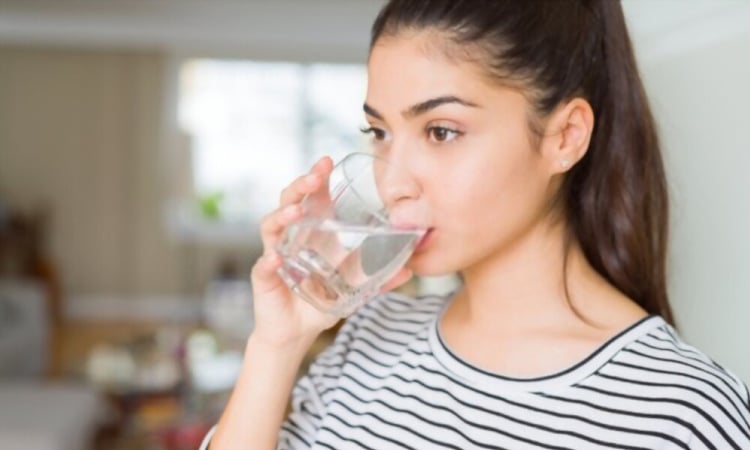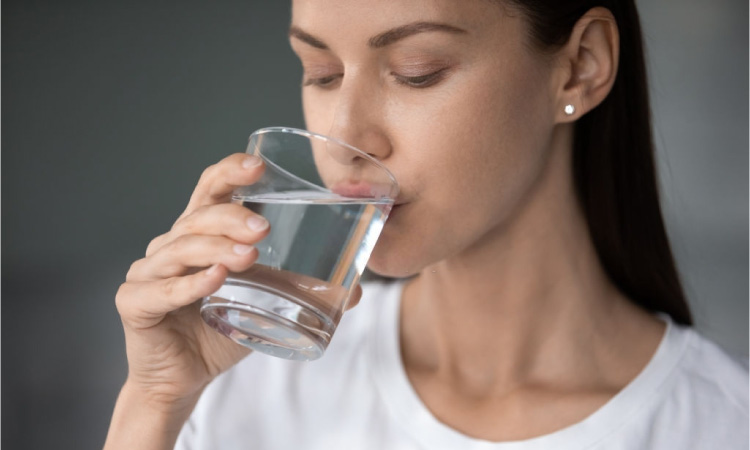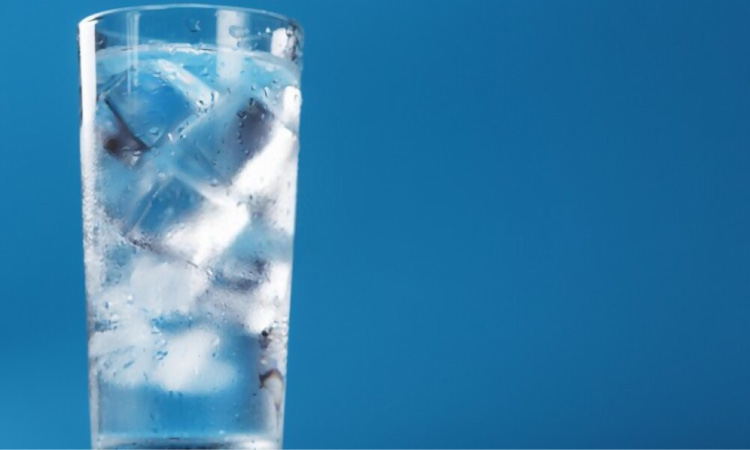Not only is the pregnancy journey chock-full of do’s and don’ts, the postpartum phase is, too. Many new mothers have heard the advice: stick to warmth and do not drink cold beverages or even cold water after delivery.
Even though many of these pieces of advice lack a scientific base, they have been practiced from generation to generation. Thus, new mothers will be confused about whether they should follow or ignore these counsels.
But this rule will be hard to follow for mothers who give birth during scorching summer or mothers who prefer cold water and refreshments over warm water and warm beverages.
Is the temperature of the water really that important after delivery? This article can help you get some insight with respect to using cold water after delivery.
Is It Safe To Drink Cold Water After Delivery?
Our panel gynaecologist Dr Ankita Patel Tayal says that what’s important is that you keep your body hydrated. Not drinking enough water can cause dehydration, constipation, haemorrhoids (piles) or urinary tract infections, among other things. If you’re worried about whether you’re getting enough water, check the colour of your urine. If it’s pale-coloured, you’re getting plenty to drink. If it’s dark yellow, or smells strongly, or if you feel lethargic or faint, you may be dehydrated, in which case you should drink more water.
There have not been many studies conducted to understand the effects of drinking cold water in the recovery after delivery. Thus, there is no evidence to advocate that drinking cold water after delivery is unsafe.
If a mother gave birth during hot summer, it is quite natural that she yearns for cold water or refrigerated juices or buttermilk. There are many drinks that the mother should not drink during pregnancy and now if you restrict the mother from drinking cold beverages, specially during summers, it eventually reduces her water intake.
Reduced water intake after delivery will adversely affect the health of the mother and her breast milk production. Breast milk is about 90% water. Thus, if the intake of fluid is compromised for any reason, the health of the child will be affected.
So, when can I start drinking cold water after delivery?
Drinking cold water right after giving birth is prohibited considering the possibility of getting ill and affecting the shrinking of the womb. This is nothing but a hypothetical assumption. This is relatively less significant when compared to the side effects of not drinking enough water or fluid after delivery.
Drinking Cold Water After Normal Delivery
If you are used to drinking cold water and have an urge to drink cold water after normal delivery, there is no need to restrict yourself. At the end of the day, it is not the temperature, but it is the quantity of water and other fluid consumed during the postpartum period that matters and having right diet is very important for after delivery care.
Make sure mothers drink plenty of water after delivery. New mothers should consume at least 12 glasses of water during the postpartum period. Drinking water after a normal delivery is very important for:
- Optimal breastmilk production
- Preventing UTI’s
- Skin health
- Preventing constipation can slow down the healing of stitches of perennial tearing or episiotomy
- Averting headaches
- Maintaining energy levels
The common assumption that the temperature of the water plays a vital role in the postpartum healing process has no scientific backing. On the other hand, there are strong reasons that emphasize the importance of staying hydrated after normal delivery.
Therefore, there is no need to restrict your urge to drink cold water. You can drink cold water after delivery. You just have to ensure that it is not too cold, particularly if you live in cold weather or use a lot of air-conditioning.
Related Reading: How To Stay Hydrated During Pregnancy?
Can We Drink Cold Water After C-section Delivery?

Unlike a normal delivery, the mother will be under strong medications after a C-section as the C-section is major surgery. After a C-section, mothers are not allowed to drink plain water or any fluid (not only cold water) before the doctor evaluates how well the mother adapts to postpartum medications.
Once the doctor has decided that everything is on the right page and the mother is acting positively on the medicines, he will allow her to start drinking water. After that, there is no harm in drinking water and other beverages.
It doesn’t matter if the water you drink after a C-section is warm or cold. Start by sipping plain water and eventually try other beverages. However, never drink aerated beverages after the C-section or normal delivery.
Though there are many do’s and don’ts after a C-section delivery, staying well hydrated after a C-section is as important as normal delivery. Water is one of the most important factors for a healthy recovery after C-section. It helps to
- Enhance breast milk production
- Prevent constipation that can stand in the way of fast recovery from C-section
- Lose extra weight gained during pregnancy
Is Drinking Cold Water Bad For Baby?
The answer is certainly not. The temperature of the water consumed by the breastfeeding mother does not affect the temperature of the breast milk. The temperature of the water that the mother drinks does not affect the components of breast milk either.
Therefore, no matter whether the breastfeeding mother drinks hot water, warm water or ice water, her breast milk will be warm enough and provides the same nutrition and antibodies to the baby. These antibodies found in breast milk protect babies from common infections. On the contrary, less water consumption can often lead to signs of low milk supply.
Drinking Cold Water After Childbirth Slows Down Recovery: Right or Wrong?
There is no scientific basis for this statement. So, we can say it is more likely not true. Unless you often fall ill after consuming something cold (like ice cream, cold refreshment etc.), drinking cold water will not impede your healing process at all.
So, if you do not usually have a problem drinking cold water, the same should be true during this time. However, if you are living in a very cold climate, opt for warm water or at least water at room temperature.
Drinking something too cold in cold weather increases the chances of throat infection and other minor infections. One study shows that drinking cold water can trigger headaches in women, headaches during pregnancy is also a very common phenomenon.
You don’t want to get sick while taking care of your little one. Also, in such a situation, only very rarely does one like to sip something too cold.
Why Not Drink Cold Water After Delivery?
If drinking cold water after delivery causes no issues, then why is it said that not to drink cold water after delivery?
Well, for the following reasons, you might have been told to refrain from using cold water and only drink warm water after delivery:
- Heat is closely connected to the healing process. As a result, drinking warm water and drinking warm beverages is thought to promote faster recovery after childbirth
- Another purpose for urging new mothers to drink warm water is that it helps the womb shrink back to its original size. This process is thought to be slowed by the cold water
- Drinking cold water after delivery increases the risk of contracting infections like cold and cough
- According to Ayurveda, cold food or cold water hinder digestion. Indigestion can cause many issues like gas formation. Developing gas after a C-section can be quite painful
Related Reading: 40 Days After Delivery – 8 Precautions And 6 Ways To Spend Them
Factors To Remember While Drinking Cold Water After Delivery

Here are a few factors to be taken into consideration while drinking cold water after delivery:
1. Drink the right amount of water
It is important to determine how much water you need to drink each day. Remember, breastfeeding increases the demand for water intake. Breastfeeding mothers should consume thirteen glasses of water a day.
By examining the color of your urine you can understand if your water intake is optimal. If your urine is pale yellow, it means your water intake is correct. on the other hand, if the color becomes dark, it means that your water intake is less than requisite, the amount of water intake needs to be increased.
2. Stay hydrated
Keeping a bottle of cold water near you and sipping it frequently will help to stay well hydrated. Likewise, make it a practice to drink a glass of water before and after breastfeeding your baby. Remember staying well hydrated is one of the most important tips for breastfeeding mothers.
3. Track the water consumed
If you think you drink enough water and still your urine is dark yellow, track the amount of water you drink. Keep a separate jug or cold-water bottle in the refrigerator for you.
Related Reading: Top 10 Benefits Of Breastfeeding For Moms
Make sure it is clean and full of freshwater. Also, make sure you don’t drink cold water that is stored for more than a day in the fridge.
4. Ensure that the cold water is clean and hygienic.
Use filtered water to make cold water or cold drinks. You can also boil the water until it reaches room temperature and then let it cool.
When Can I Have A Cold Water Bath After Delivery?

Now once you understood important factors about drinking cold water after delivery, what about using cold water to wash your body after delivery? Touching cold water after delivery is not as harmless as drinking cold water after delivery. A cold-water bath after delivery needs to wait for at least 56 days.
It is found that during the recovery period after the delivery, taking bath in cold water can bring about:
- Lochia that never ends: The lochia is completely drained, which indicates that the uterine recovery is going well. If the lochia persists, it indicates that the uterus has not recovered completely. A cold-water bath after delivery is found to increase the quantity of lochia and lochia dripping for a prolonged time
- Back pain: Coldwater baths after delivery will make new mothers prone to dysmenorrhea (painful menstrual period) and back pain in the future and particularly tailbone pain after a C-section
- Joint pain: The body is weak after childbirth, and the joints are not fully recovered. Early exposure to cold water can cause joint pain
- Delayed uterine contraction: After delivery, uterus needs some time to contract and go back to its original size. Exposure to cold water will further delay this process
Conclusion
Keep in mind that water intake after delivery varies per individual. According to Dr Ankita Patel Tayal, MD OBGYN, water will probably make up most of your fluid intake, and it’s recommended you have about eight to 12 glasses a day. You could also have other healthy drinks such as lassi, buttermilk (chhaach), coconut water, lemon water (nimbu pani), unsweetened fresh fruit and vegetable juices. On a hot summer day, if you long for fresh lemonade, no need to restrict yourself. It’s not the temperature of the water, but the quantity of water that is relevant.


